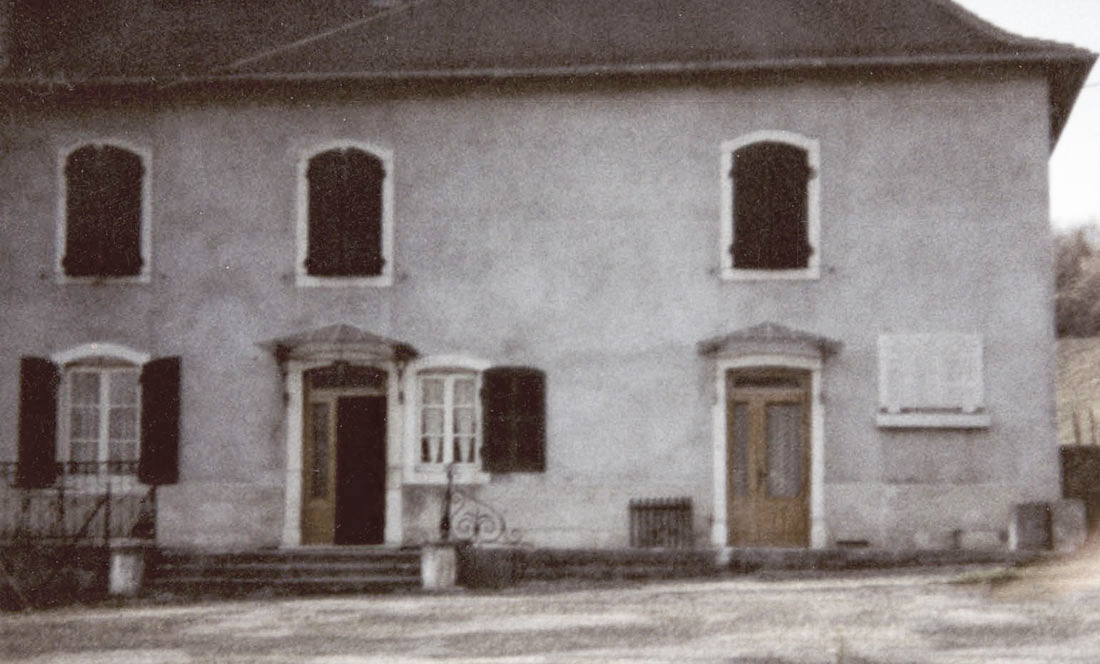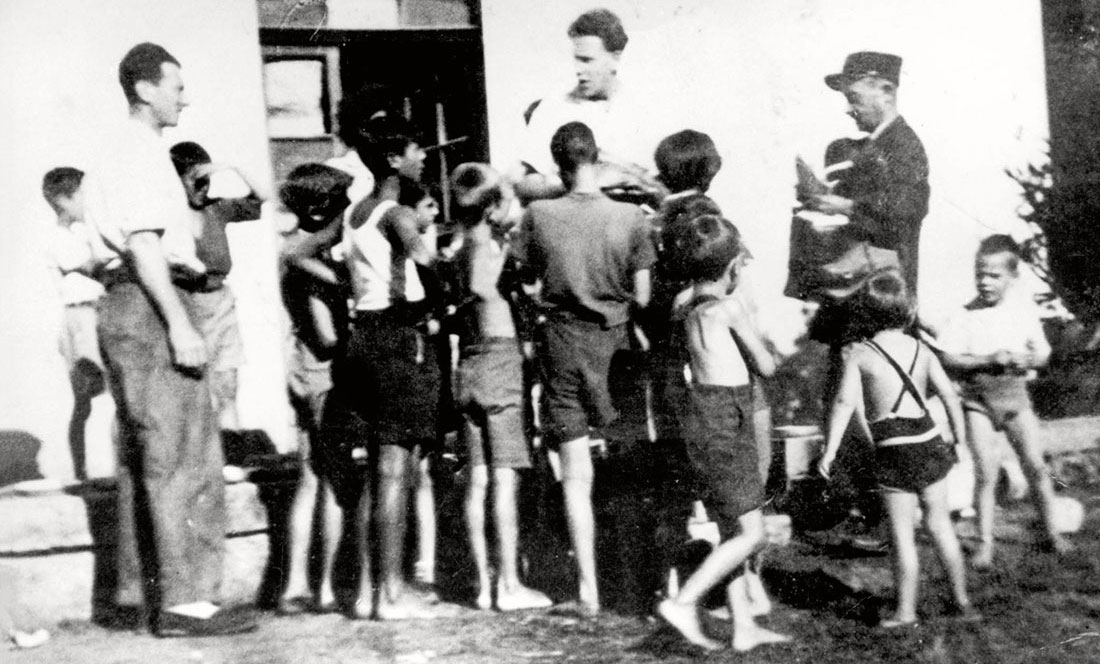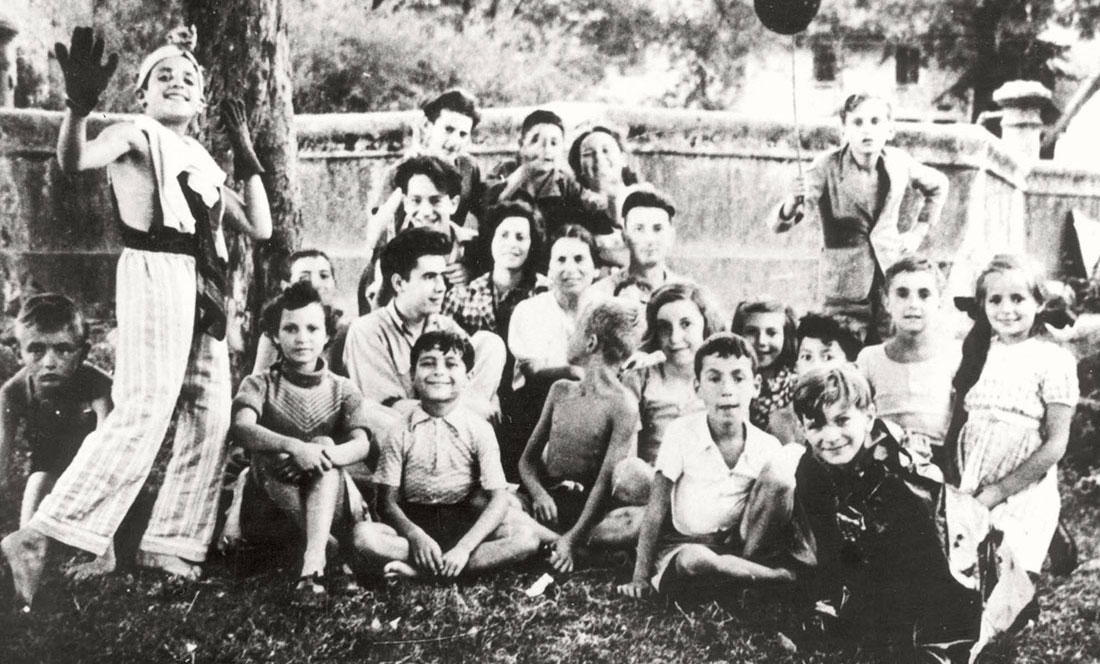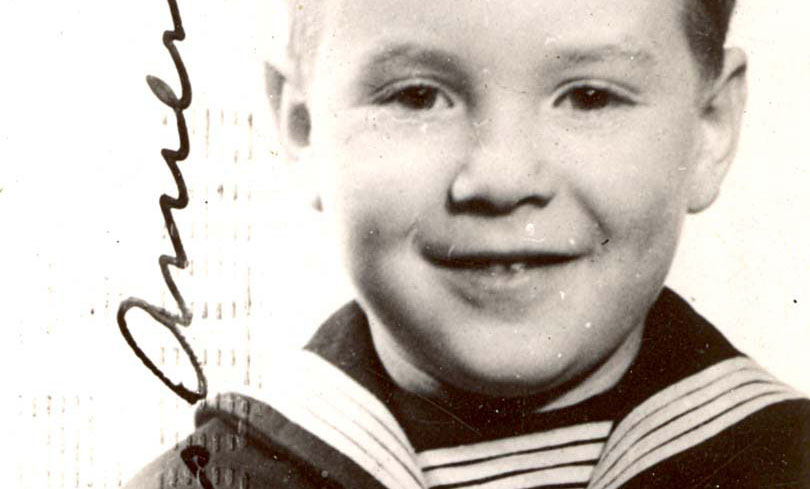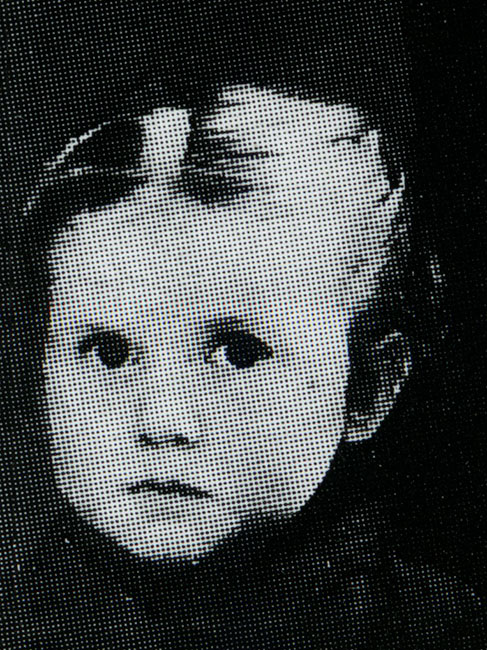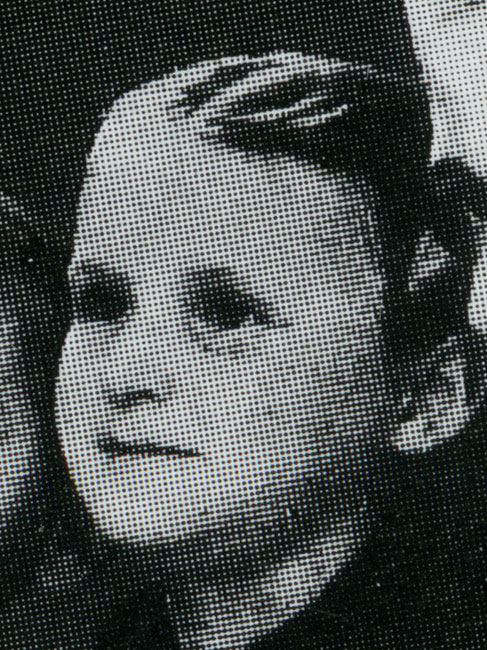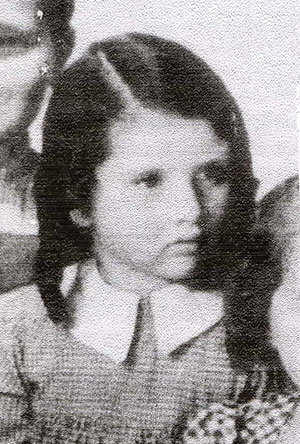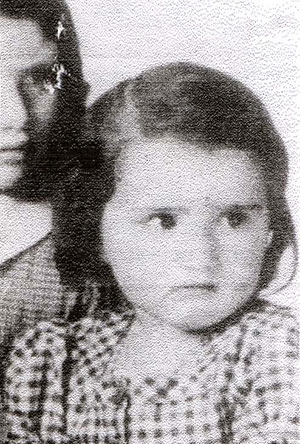Maison D'Izieu
Personal Stories
The Gerenstein Family
Just days before the raid on the children's home in Izieu, eleven-year-old Liliane Gerenstein wrote a heart-rending letter to God. The letter (written in French) was found in the house after the children had been taken away.
God? How good You are, and how kind, and if we had to count all You have bestowed upon us that is good and kind, our counting would be without end… God? It is You who command. It is You who are justice. It is You who reward the good and punish the evil. God? I can therefore say that I will never forsake You. I will always be mindful of You, even to the last moments of my life. You can be absolutely certain of that. For me, You are something beyond words, so good are You. You may believe me.
God? It is thanks to You that I enjoyed a wonderful life before, that I was spoiled, that I had lovely things, things that others do not have. PARENTS, MY POOR PARENTS, PROTECT THEM (even more than myself) SO THAT I MAY SEE THEM AS SOON AS POSSIBLE. HAVE THEM COME BACK ONE MORE TIME. Oh! I can say that I have had such a good mother, and such a good father! I have such faith in You that I thank You in advance.
Serge Klarsfeld, The children of Izieu, A Human Tragedy, 1984, p. 56
Liliane was born in 1933 to musician Alexandre Chapse-Gerenstein and his wife Chendlia née Entine. Alexandre and Chendlia, both from Odessa, immigrated to France and settled in Paris. Liliane's brother Maurice was born in 1931. In November 1943, Alexandre and Chendlia were deported on Convoy 62 from Drancy to Auschwitz.
It is not known exactly when Liliane came to live in the children's home in Izieu. On the morning of the raid , her brother arrived there too as his boarding school had closed for Easter. Leon Reifman, one of the staff, brought him to the home together with his friend, Max-Marcel Balsam, whose brother Jean-Paul was also living there. All four children were arrested in the raid, and deported from Drancy on 13 April 1944 to Auschwitz, where they were murdered.
Alexandre, who played in the orchestra at Auschwitz, survived and immigrated to the US. In 1983, he submitted Pages of Testimony to Yad Vashem in memory of his children, Maurice and Liliane, and his wife Chendlia.
The Halaunbrenner Family
Two of the little girls caught in Izieu and murdered at Auschwitz were Mina and Claudine Halaunbrenner, daughters of Jacob and Ita-Rosa Halaunbrenner.
Jacob and Ita-Rosa (originally from Poland) Halaunbrenner lived in Austria, where their eldest son Léon was born in 1929. The family immigrated to Paris, where their other four children were born: Alexandre (b. 1931), Mina (b. 1935), Claudine (B. 1939) and Monique (b. 1941).
In 1943, Jacob and his son Léon were arrested by the Lyon Gestapo. fourteen-year-old Léon was deported to Auschwitz where he was forced to work in a salt mine, and perished. Jacob was imprisoned in Lyon and executed. Ita-Rosa, penniless, without work and not knowing a soul, was left to take care of their four remaining children. Heartbroken, but comforted by the fact that they would be safe, warm and well-fed, she entrusted eight-year-old Mina and five-year-old Claudine to members of the OSE who brought the girls to the children's home in Izieu. Alexandre and Monique remained with their mother, and the three of them survived. Mina and Claudine were caught in the raid on the children's home in Izieu, and deported on 30 June 1944 from Drancy to Auschwitz, where they were murdered.
Ita-Rosa Halaunbrenner took part in the struggle to bring Klaus Barbie, head of the Lyon Gestapo, to trial in France, and testified in court.
In 1986, Liora Halaunbrenner, Ita-Rosa's granddaughter, submitted Pages of Testimony to Yad Vashem in memory of Mina and Claudine, their father Jacob and their brother Léon.
The Ament Family
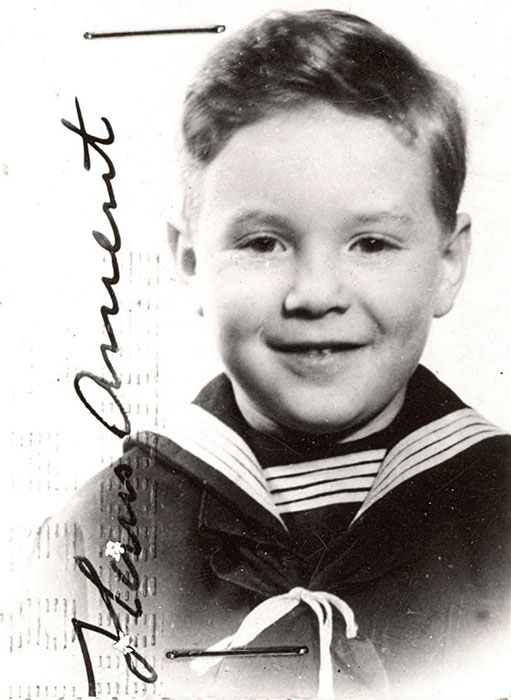 Hans Ament. One of the children at the children's home in Izieu, France. Ten-year-old Hans was murdered at Auschwitz
Hans Ament. One of the children at the children's home in Izieu, France. Ten-year-old Hans was murdered at Auschwitz
Ten-year-old Hans Ament was one of the children living in the children's home in Izieu. Hans was arrested in the raid, taken to the Drancy concentration camp, and on 30 May 1944, was deported to Auschwitz where he was murdered.
Max Ament, born in Poland, and his wife Ernestina, from Hungary, lived in Vienna with their sons Alfred (b. 1928) and Hans (b. 1934). In 1939 the family moved to Belgium, planning to immigrate to the US. In March 1940, a US visa was issued to Hans in Antwerp, but in May 1940, before Hans was able to leave, the Germans invaded Belgium and the Aments fled to France.
Max was deported from Drancy in March 1943, and murdered at either Sobibor or Majdanek. That same month, Ernestina was admitted to a sanatorium for tuberculosis patients, several dozen kilometers from the children's home in Izieu where her little boy, Hans had been brought. Her older son, sixteen-year-old Alfred, was smuggled into Switzerland by the OSE.
In a letter that Hans sent from Izieu to his mother in the sanatorium, the ten-year-old wrote:
"100,000,000 big kisses from your son who is always thinking of you."
Hans was caught together with the other children at the home in Izieu, and deported on 30 May 1944 from Drancy to Auschwitz, where he was murdered. His mother Ernestina died in the sanatorium in August 1944. His brother Alfred immigrated to the US after the war. In 1986, Alfred Ament submitted Pages of Testimony to Yad Vashem in memory of his father, Max and his brother, Hans.
The Krochmal Family
Eight-year-old Rénate and six-year-old Liane Krochmal, who lived in the children's home in Izieu, were deported to their deaths on 13 April 1944.
In 1938, Yaakov and Amalie Krochmal-Kolboshover fled from Austria to Belgium with their 3 children, Siegfried (b. 1931), Rénate (b. 1935) and Liane (b. 1937). Jacob had a brother and a sister in the US, but all his attempts to obtain entry permits for himself and his family proved unsuccessful.
The Krochmal family was arrested and interned in the Rivesaltes concentration camp, where Siegfried perished. His parents were transferred to Drancy and in September 1942, they were deported to Auschwitz, where they were murdered. It is not known when and how Rénate and Liane came to the children's home in Izieu, but they were caught in the raid, and deported with all the other children in the home to the extermination camps in Eastern Europe, where they were murdered.
In 1999, Zvi Carmeli (Krochmal), Jacob and Amalie's nephew, submitted Pages of Testimony to Yad Vashem in memory of his relatives, children Siegfried, Rénate and Liane, and their parents, Yaakov and Amalie.
